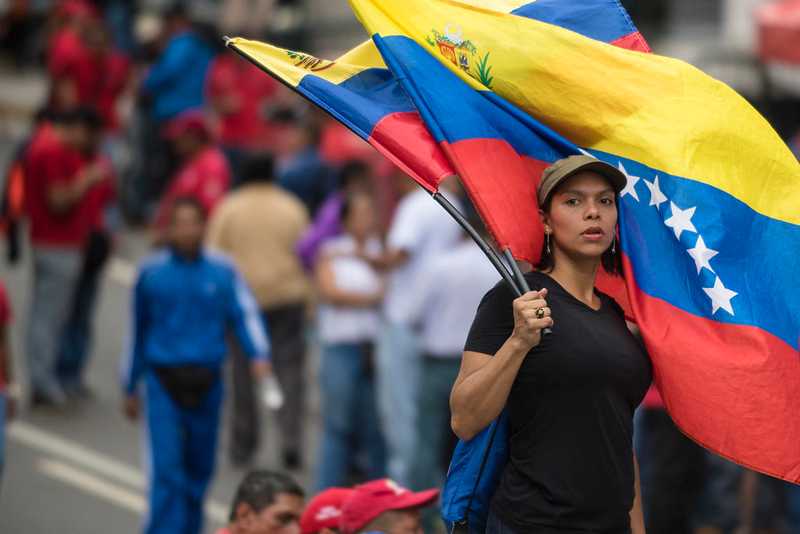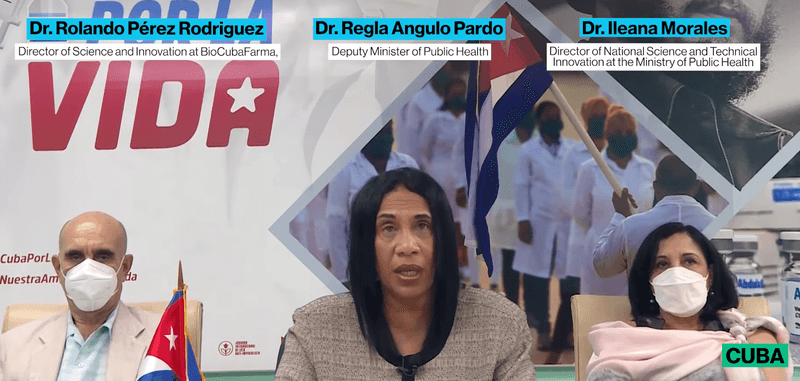
According to the UN, crimes against humanity are those that constitute widespread or systematic attacks on the civilian population, as well as extermination, enslavement, deportation or forcible expulsion, deprivation of physical and intellectual liberty in violation of international law or torture, rape, prostitution and sexual violence, persecution of a group (including media lynching) on political, racial, national, ethnic, cultural, religious or gender grounds; enforced disappearance of persons, apartheid and other acts that violate the integrity of individuals and social groups.
The blockade is a good example, even if they call it an embargo. Before the purists of legal classifications start rehearsing in scholastic eloquence, they should know there is no room for it here. Anything that threatens the life, liberty, rights and dignity of people is a crime against humanity... and blockades are one of the most treacherous, illegal and illegitimate forms of capitalist warfare, despite the ideologies, treaties, and legislation used to camouflage them.
Fighting the blockade is more than a legal matter. The repudiation at the United Nations and the angry proclamations of the most indignant voices have helped very little. Therefore, the battle against the blockade is a political struggle that does not stop at bureaucracies' doors. It requires a radical battle against capitalism and its mode of production and relations.
In its development since the Second World War, capitalism has undoubtedly produced equal or worse horrors against the human species. It has produced usurpations, invasions, and thefts. All kinds of deceit, manipulation, and humiliation. Destruction of countries and cultures. Misery and destitution, kidnappings, and blockades — it is impossible to disguise so many horrors!
These are all manifestations of a merciless war against the peoples and the consequences are getting worse. They are becoming a pandemic. There is no future for humanity under such a system, yet the empire imposes embargoes and blockades as punishment on those who refuse to applaud its horrors. For example, the blockade against Cuba is the longest known in modern history and although it has been condemned countless times, nothing happens; the same is true against Venezuela and anyone who tries to develop relations with either country.
Some are only concerned by the economic damage caused by the blockade, but this fails to understand and denounce the damage to health, education, housing, work, and culture. The blockade is part of the imperial psychological war against all rebellion. Let us not forget the ethical obligation we all have to denounce the systematic attack on the morale of the peoples subjected to blockades.
The urgency of a new planetary declaration for human rights is clearer than ever. One that sheds all traces of individualism and ascends to a humanist practice that does not diminish rights but instead expands them to reflect all the dimensions of their social character. It is time to empower ourselves through a new, binding, and global humanist programme in all constitutional bodies and ethical hierarchies. Genuine social justice must be achieved to safeguard us from the ruthless forms of inequality, deprivation and marginalisation that reign.
We need a new kind of human rights declaration to condemn the blockade, this time a democratic one, signed and accepted by the workers' organisations and social movements fighting against the division of humanity based on social class. A new humanist system, composed of chapters subject to a dynamic and integral conception, capable of perfecting itself through objective practice and the permanent democratic organisation of overseers, supervisors and controllers organised in ethical committees to develop collective rights and responsibilities.It will need to break with the mantra of false democracy to democratise the Universal Declaration of Human Rights, and renew it on the basis of consensus.
The necessary step in the short term is to break with the idea that such a declaration must remain caged in diplomatic verbiage, and ascend to one that is based on socialist and humanist struggles and is synonymous with practical strength sustained by critical thinking. We need a declaration that includes debates and scrutiny of peoples against their oppressors.
Marx said that currently human rights are those of members of bourgeois society, i.e. of selfish individuals, separated from themselves and from the community. But the rights of citizens can only be exercised within the community. The contents of human rights are formed by participation in community, specifically in the political community, in the state. Human rights don’t come from a group of individuals who only look out for themselves. We need a declaration that functions as a tool for daily, participative and action oriented critique that allows us to make proclamations based on the fundamental and inalienable respect for work: all members of society have an equal right to receive the full fruits of their labour or to a fair distribution of the fruits of their labour.
We need an internationalist, grassroots agreement to critically rebuild human rights to oppose the limited and inhuman nature of the logic of capital. We need to fight against all forms of blockade as they constitute a flagrant and systematic crime. Humanism needs to be more than a compendium of philanthropic good intentions and ascend to true emancipatory practice. Like Marx thought, in the light of history, it needs to be inseparable from the content social forces have given it in their emancipatory struggles. We need a humanism of a new kind, one of desirable, possible and achievable action for forces based on participatory democracy. A humanism that does not succumb to the fiercest of ideological oppression implicit in the subtraction of surplus value. A humanism that stops at nothing, that defends nature, that protects cultural heritage, that fights against the business of war, vulture banks and the mass media, those machines of ideological warfare. Let us not accept any more deceit, the blockade is a crime against humanity and it must be stopped, punished and the damage it has caused globally must be repaired.
Fernando Buen Abad Domínguez is director of the Institute of Culture and Communication and the Sean MacBride Centre at the National University of Lanús.
This piece originally appeared on The Network of Defense of Humanity.
Photo: Clara Sanchiz, Flickr



